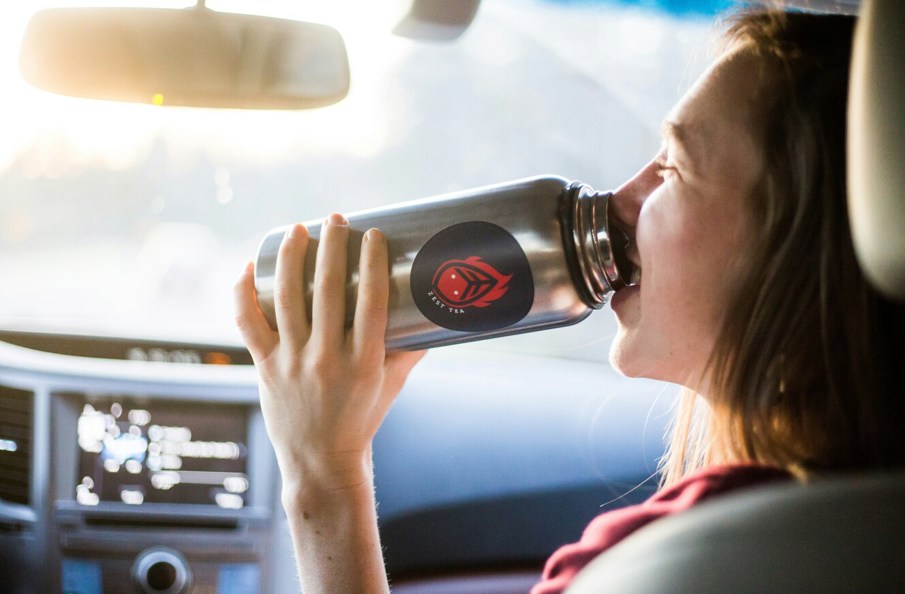While the phrase "drink and drive" usually carries negative connotations, in the context of hydration, it takes on a whole new meaning.
Past studies have revealed that staying hydrated while driving is crucial for maintaining alertness and safety on the road.
In fact, dehydration can impair your driving ability almost as much as alcohol, making it essential to drink water regularly during long drives. That's why the folks at Scrap Car Comparison are urging drivers to monitor their hydration levels on the road.
Why hydration is crucial for safe driving

Surprising research from Loughborough University found that mild dehydration can double the number of driving errors. These mistakes are comparable to the lapses you’d expect from drivers under the influence of drugs or alcohol.
Dehydration affects your cognitive performance, resulting in slower reaction times, reduced focus, and poor decision-making—all dangerous factors when behind the wheel.
David Kottaun, Operations Manager at Scrap Car Comparison, emphasises the importance of hydration, stating, “It’s quite staggering to realise that being dehydrated can have a similar impact on our driving ability. Drivers who neglect to drink enough water during long trips often arrive at their destination feeling fatigued or with headaches, especially on warm days.”
How much water should you drink while driving?
To prevent dehydration, drivers should follow a recommended water intake schedule based on the length of their journey.
For example, on a one-hour drive, you should consume 100-167 ml or around half a cup of water to stay on the safe side.
If you're driving for 8 hours or more, however, aim for around a litre or more of water per hour to stay properly hydrated.
While this may seem excessive, drinking water gradually can improve concentration and overall well-being on the road.
Although some drivers may avoid drinking water to reduce the need for toilet breaks, taking regular stops is beneficial. Not only does it allow for a moment to stretch and refocus, but it also reduces fatigue, making you a more alert and safer driver.
Tips for staying hydrated safely on the road
Maintaining hydration while driving doesn't have to be difficult. Here are some practical tips to help you safely stay hydrated during long drives:
- Bring a reusable bottle: Reusable water bottles tend to hold more water than single-use options, so you won’t need to refill as often.
- Use bottles with sports tops: A sports-style top allows you to take quick sips without unscrewing the cap, which reduces distractions.
- Take small, frequent sips: Regular, small sips prevent dehydration without needing to take long, risky gulps while driving.
- Pick your moment: Drink water when the road is straight and clear of heavy traffic or frequent stops, like roundabouts or intersections.
- Let your passenger help: If you're driving with a passenger, they can assist by passing you water or reminding you to drink regularly.
The benefits of staying hydrated behind the wheel
Hydration is not only essential for your health but also for your performance on the road.
Kottaun points out that "regular hydration can help drivers avoid the common symptoms of dehydration, such as fatigue and headaches, which can seriously affect their driving ability."
Drinking the right amount of water helps to keep your concentration sharp, reaction times quick, and decision-making abilities intact. In short, staying hydrated is key to being a safer, more effective driver.
So, when is it good to "drink and drive"? When the drink in question is water, and the drive is long.
Proper hydration is vital for your health and your driving performance. Taking regular sips of water and maintaining hydration will ensure you stay alert, responsive and safe behind the wheel.





